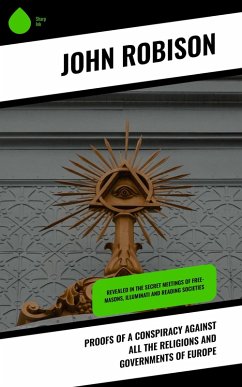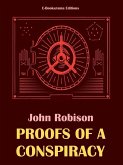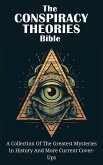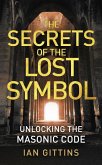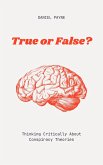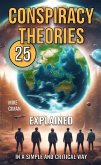In "Proofs of a Conspiracy against all the Religions and Governments of Europe," John Robison meticulously explores the clandestine networks that sought to undermine established religious and political institutions during the late 18th century. Written in an incisive and engaging style, Robison's treatise emerges from the intellectual tumult of the Enlightenment, where radical ideas were reshaping societal norms. His work critically examines the influence of secret societies, particularly the Illuminati, and their purported role in inciting revolutionary sentiments across Europe. Through methodical reasoning and extensive documentation, Robison offers a compelling narrative that straddles both philosophical inquiry and political commentary, making it a vital historical document in understanding the era's ideological battles. John Robison, a Scottish physicist and professor, was deeply embedded in the intellectual circles of his time, which included associations with prominent Enlightenment figures. Having witnessed the repercussions of the French Revolution and the rise of radical ideologies, Robison's concerns about societal stability and moral order propelled him to write this cautionary account. His experience as a scientist and educator, coupled with his engagement in political discourse, imbued him with a unique perspective on the intersection of knowledge and power. I highly recommend this essential read for those interested in the intricate relationship between secret societies, religion, and government in shaping modern Europe. Robison's work not only serves as a historical investigation but also prompts critical reflection on contemporary issues of conspiracy, governance, and social cohesion, making it a relevant addition to both academic and personal libraries.
Dieser Download kann aus rechtlichen Gründen nur mit Rechnungsadresse in A, B, BG, CY, CZ, D, DK, EW, E, FIN, F, GR, HR, H, IRL, I, LT, L, LR, M, NL, PL, P, R, S, SLO, SK ausgeliefert werden.

